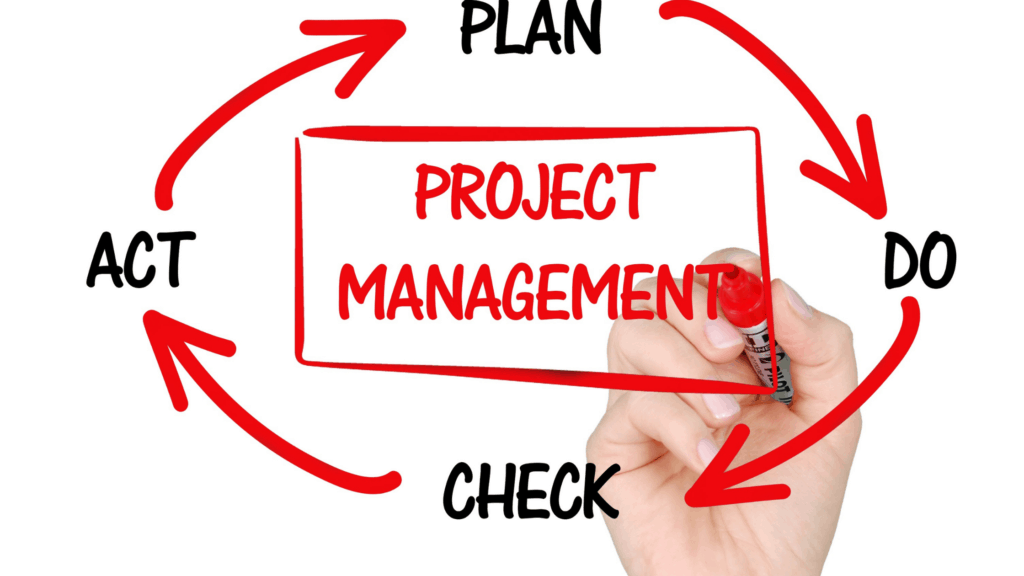
Project management refers to planning, organizing, and coordinating the entire process from the beginning to the end of the project using systematic theoretical methods and limited conditions and resources until the project goals are finally achieved. The whole process of a project from concept to completion is very complicated.
Regardless of the industry, the ability to complete projects on time and within budget is critical to its success in the most competitive global business environment.
With the rapid development of the economy and technology, companies must be good at optimizing routine processes and turning to and implementing more flexible projects immediately. Although they will face many uncertainties and challenges, companies can move towards their goals with a clear roadmap.
This article will cover:
- What is a project?
- The five stages of project management
- The focus of project management
- How to better manage the project?
What is a project?
A project is that people organize human, material, and financial resources by using specific methods to complete an independent, one-time task within a limited budget and time to achieve the organization’s predetermined goals. Depending on the complexity of different projects, it can be completed by one person or hundreds of people.
The completion of a project means that it will produce deliverables. Any content, such as documents, plans, and reports generated during the project development process, is considered deliverable.
Regardless of the format and time constraints, if the expected results are achieved on time within the budget, the project will succeed.
The 5 stages of project management
Generally, project management is divided into five stages, each with different tasks, goals, and specific deadlines. The particular stages are as follows:
1. Project start
The first stage of project management is called project initiation. Project initiation includes initiating the project, naming the project, and defining the extensive plan of the project. Simultaneously, the goal is determined according to the project’s limitations, risks, and participation. Besides, the feasibility of the project will be determined based on the results of the project’s available research.
2. Project planning
A comprehensive operational roadmap that can guide the team through the various stages of project execution and termination needs to be developed in the planning stage, and deadlines must be set at key nodes. In addition, resource allocation must be done well.
Decomposing tasks into smaller and easier-to-manage activities makes it easier to manage risks, costs, quality, time schedules, etc. At the same time, breaking down the task into digestible parts will enable each participant to complete the project timely and stay within budget.
3. Project execution
Project planning will be implemented at this stage. At this time, the project team will be responsible for the deliverables to ensure that the project can complete the initial set goals.
Meetings are usually held to announce the official start of project execution. Team members can get to know each other and discuss their roles in the success of the project, and determine the usual communication methods and auxiliary tools used before the project plan is executed. In addition, team members should be familiar with the content of meetings and reports that will be held throughout the phase to clarify their job responsibilities.
The execution phase is the key point of project management because it will help everyone determine whether their efforts will ultimately be effective. Simply put, it is to prove the final result through execution.
4. Project monitoring and control
Project monitoring and control and project execution will occur simultaneously. According to the plan, the responsibility of the project manager is to supervise operations and ensure that everything is running smoothly in the right direction.
Besides, monitoring the performance of the project, the project manager must also monitor resources, manage risks, and be responsible for related meetings and corresponding periodic reports. If there are unforeseen problems, the project manager must adjust the plan content and schedule.
5. Project closing
The final stage of project management is not as simple as writing a report or giving a piece of data. The project manager must record all deliverables and transfer the project to the client or other team responsible for overseeing its operations.
Not only that, but team members can also gather together for the last meeting to discuss what they have learned and reward employees who have made outstanding contributions.
The focus of project management
The most essential elements of project management are quality control, schedule management, and cost management:
1. Quality control
Quality management consists of quality planning, quality assurance, and quality control. Therefore, quality is the foundation of project success.
2. Progress management
Schedule management is an important basis for ensuring that the project can be completed on schedule. Under the premise of the overall plan of the project, each participant or team shall decompose the plan according to the target requirements and ensure effective execution. The overall progress cannot be affected by a problem at a node so as to ensure the smooth progress of the project.
3. Cost management
It is the process of making sure that the project completes project within the approved budget, including formulating resource allocation plans, cost estimation, determining project budgets, and cost control.
How to better manage the project?
Project management is a challenging task that requires strong resource coordination and overall management and control capabilities.
No matter what your project goal is, understand, and control the five stages of project management and grasp the three key contents of project management. Regardless of the industry and market environment of the organization, you can make the project move in the right direction. Development, the success rate of the project can be greatly improved!
If a worker wants to do his job well, he must first sharpen his tools. So, you need to use useful project management system software like Billed, or Agiled.
Related Articles:
